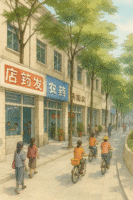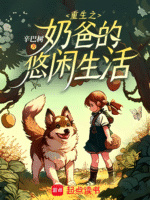I Have A Store C46
by MarineTLChapter 46: Peking Duck
After that, Zhou Yimin went to the steel mill to check in and show his face.
As he expected, he had become quite the celebrity at the factory.
Most of the procurement officers in his unit were out on purchasing trips, leaving only Team Lead Wang stationed at headquarters. Zhou Yimin chatted with him for a bit before leaving the steel mill.
He then made a trip to Quanjude and bought a Peking duck.
At this time, the price of a Peking duck was six yuan per piece. It could be considered expensive, as the average monthly wage was just over thirty yuan.
However, compared to the prices of meat on the black market, this was nothing.
Some might wonder if they could buy large quantities from legitimate stores and resell them at a high price on the black market to make a fortune.
Wishful thinking. Everything required ration tickets—how could they let you buy in bulk?
Zhou Yimin knew that in just a few years, even Quanjude wouldn’t be spared. By then, even its signboard would be taken down, and the restaurant would be renamed “Beijing Roast Duck Restaurant.”
In Beijing, besides Quanjude, there was also Bianyifang, another famous place for roast duck.
Although both served Peking duck, their cooking methods differed. Quanjude used an open-hanging oven, while Bianyifang used a closed-roasting oven—each with its own merits.
After purchasing the Peking duck, Zhou Yimin added a few more items to his shopping basket: a few pounds of apples, ten pounds of noodles, and ten pounds of cured sausage.
Additionally, he bought some seeds from the store in his mind—seven or eight types, mostly fast-growing vegetables such as bok choy, rapeseed greens, and green beans, which could be harvested in a month or two.
He also got some crops with longer growing periods, like pumpkins and radishes, which took over four months to mature.
It was early June, so even the crops that took four months to grow could be harvested before the first snowfall. The yield might be slightly affected, but it didn’t matter much since everything grown in the riverbed belonged to the village.
Once everything was ready, he immediately returned to Zhoujiazhuang.
“You’re back so early?” His grandfather was surprised when he saw his eldest grandson park the bicycle and carry the shopping basket into the house.
He had expected him to return in the evening—maybe even the next day.
“There wasn’t much to do at the factory, so I came back early. Grandpa, I bought a roast duck. We’re having roast duck for dinner tonight.”
“Great! Roast duck is a treat.”
At his age, the old man had only eaten roast duck a handful of times. In times like these, being able to eat roast duck was all thanks to his good grandson. Relying on his son? Might as well hope for pigs to climb trees.
Inside the house, Zhou Yimin started taking items out of his shopping basket.
His grandmother also came out of the room—she had just put little Qianqian down for a nap.
“This cured sausage was bought by a colleague. I took some from them,” Zhou Yimin casually lied without hesitation.
His grandmother took the sausage and praised, “This sausage is well-made!”
She actually wanted to tell her grandson not to keep bringing food back all the time. They still had plenty of cured duck left! Now with more sausage, there was no way they could finish everything.
“Grandma, we’re having roast duck tonight. Let’s invite Laifu and the others over—it’ll be livelier.” Saying that, Zhou Yimin took out the roast duck, filling the air with its delicious aroma.
“Alright, I got it,” his grandmother responded.
She knew that her grandson had bought it specifically for them, and while she was touched, she also worried about his spending habits.
This didn’t seem like a sustainable way of living!
Lately, her grandson had been bringing things home as if he were stocking up a store.
Hopefully, once he gets married, his wife can rein him in a little.
His grandfather, however, didn’t see it that way. After all, his grandson had been performing exceptionally well lately. With his capabilities, how could he not be able to support a family in the future?
More importantly, the old man could tell that while his grandson seemed extravagant, he was actually level-headed and knew what he was doing.
“I also got these apples. A friend gave them to me—Grandpa, Grandma, try some.” Zhou Yimin once again made up a friend out of thin air.
His grandparents were shocked.
At this time, apples were harder to come by than meat. Their grandson must have some highly capable friends!
Next, he took out noodles, enamel mugs, and other items.
He had already given his grandfather the enamel mug he won from the factory, so this one was for his grandmother—it worked out perfectly.
“Why buy another mug?” His grandfather noticed there was also an enamel washbasin. Was his grandson planning to move everything to the village?
“Grandpa! This wasn’t bought—it was a reward from the neighborhood committee. There was also a thermos, but I didn’t bring it back. The mug is just right for Grandma, and here’s the washbasin.”
His grandmother was delighted—it wasn’t just practical, but also made her feel proud. After all, a reward didn’t cost money and gave her bragging rights.
“I’m going to deliver the seeds to the village head.”
His grandfather nodded. “Alright, go ahead. Come back early.”
Zhou Yimin found the village head and handed over the seeds.
“Yimin, we’re really grateful to you. Here, see if this money is enough?” The village head took out some money—the village funds were already running low.
He was deeply thankful to Zhou Yimin.
First, he had helped them solve the food crisis. Then, he came up with a brilliant idea that pointed Zhoujiazhuang toward a path of prosperity. If they executed it well, the village might actually become wealthy.
Without even looking, Zhou Yimin accepted the money. “It’s enough.”
After thinking for a moment, he added, “Village head, set aside some land. In a few days, I’ll get you some corn seeds.”
He knew that even if this season’s harvest wasn’t reduced, they would still run out of food later and go hungry. It was necessary to plant some coarse grains as a backup.
The village head grinned. “That’s exactly what I was thinking. We’ll have to trouble you again.”
As farmers, they knew better than anyone that food shortages were inevitable.
At this time of year, about the only thing they could still plant was autumn corn. It was typically sown about two weeks before the wheat harvest, so there was still time.
Without that stretch of riverbed, none of this would have been possible.
After all, you couldn’t plant anything without land.
—
Meanwhile, in Shangshui Village, Village Chief Wang listened to reports from the villagers.
“Chief, do you think we should…?”
That vast stretch of “land”—and fertile land at that—who could resist?
Before, they had always treated it as a river, and even after it dried up, no one thought of claiming it. But now that Zhoujiazhuang had taken the initiative, what were they waiting for?
“What if the water comes back?” someone hesitated.
“Do you think that river is going to flow again this year?”
“We don’t have seeds, though.”
In these times, grain seeds were usually set aside by the village. Buying them externally was difficult. If a village was forced to eat its seed stock, the consequences would be severe.
Village Chief Wang made a decision. “Tomorrow, take some people and start cultivating our section of the riverbed.”
They had just survived a famine, and people had starved to death. That made them cherish food even more.
As for the seeds… they’d figure something out.
“Got it!”
The villagers eagerly prepared for action.
They all knew that as long as they grew crops on the riverbed, it belonged to the village—they wouldn’t have to hand any of it over. At least, not until the higher-ups made an official ruling.
—
Back at the siheyuan (courtyard house), the residents were discussing the vacant house.
No one had expected Luo Dapeng to snatch it up first.
(End of Chapter)
—
—Quanjude (全聚德), famous for Peking duck, was a state-controlled restaurant in 1960s China. Under the public-private partnership (1952), it mainly served government officials and foreign guests, as regular citizens faced food shortages. Despite rationing, Quanjude had state support for ingredients. The Cultural Revolution (1966-1976) disrupted many businesses, but Quanjude survived and later thrived in the reform era.










0 Comments